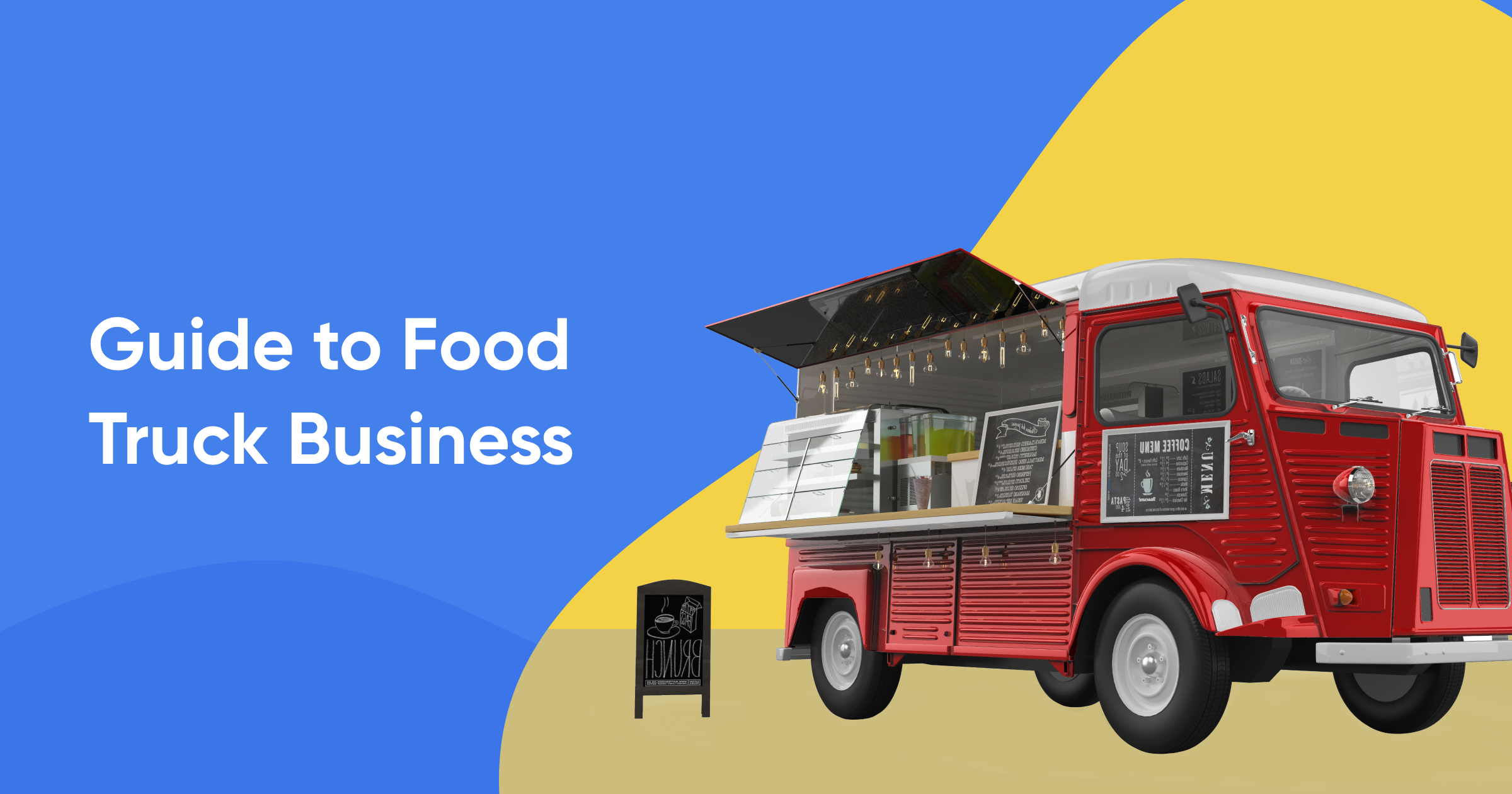Amrusha Chati
01 September 2023 • 4 min read

All the fun of creating culinary delights, from hot dogs to gourmet salads, without the hassles and financial burdens of a restaurant. A food truck is a perfect small business for a creative and adventurous food entrepreneur. But first, you need a good food truck business plan.
After all, it's not all fun and games. A food truck is a serious business. It's a $1.23 billion industry in the US and is expected to grow to $2.04 billion by 2030. However, starting a business can come with many hidden costs and challenges for a business owner.
So, if you're an aspiring entrepreneur looking to break into this competitive food industry, you must be armed with a solid plan.
Here's our guide to creating your food truck business plan.
The US is currently home to over 35000 food truck businesses. Competition is tough. Doing thorough market research and analysis before you start is crucial to increase your chances of success.
You'll need to study the market for things like:
Accurate information about your consumers, competitors, and the industry will help you assess the viability of your concept and plan for potential risks and opportunities.
It can also guide you to set a budget and use your resources in the best way possible.
The next step in creating your business plan is a unique name and logo for your mobile food business. These should be catchy enough to make you stand out in customers' minds. But they also have to be easy to remember and relatable.
You'll also have to trademark these.
Once you've narrowed it down to a few options you like, check that some other food trucks haven't beaten you to it. You can run an extensive search, including using trademark search tools. If the name you want is available, you can get help from a trademark attorney to register your trademark with the USPTO.
Ensure your name and brand are legally protected before investing money and resources into your food truck business.
Once you've secured your food truck brand, it's time to get to the other legal stuff.
Your legal structure can impact your taxes, personal liability, and future expansion plans.
Some of the best legal structures for food truck owners are:
Deciding between these is a complex but necessary part of your food truck business plan. We highly recommend working with a professional to help you make and execute this decision.
While movies will tell you all you need is passion and a food truck, most food truck owners would beg to differ. You need much more than that to protect your business, so ensure you follow all the regulations.
One essential part of this is ensuring you get all the necessary licenses and permits. The following are some of the most important ones for food trucks:
This isn't an exhaustive list, as the local requirements can vary from place to place. Seeking help from a professional familiar with the local regulations will help you avoid missteps.
This is to make a compelling food truck business plan for potential investors. Food truck businesses are relatively cheaper compared to restaurants. But they're not that cheap. It costs $ 55,000 on average to open a food truck in the US. You'll need an investor to put in this capital to get started.
But before pitching to investors, you need to have a clear business plan. Figure out your products, estimated revenue, marketing strategy for your target market, and how much your cooking equipment and food costs are.
At this stage, the marketing and sales portion will be projections, but use your market research to arrive at accurate estimates. Food truck marketing differs from marketing for restaurants, so explore social media marketing strategies that could work for you.
Now, you have your market analysis, legal requirements, and necessary permissions in place.
All that's left is to organize your business plan into a document or presentation. Plenty of templates for a food truck business plan are available online to make this easier for you.
Pro tip: Write a snappy executive summary that can catch the attention of investors.
Though the food truck industry is competitive, a food truck is an exciting venture. Innovative offerings, understanding potential customers, and ensuring high quality are how most successful food trucks have thrived.
Yes, in addition to the standard operation fees, food trucks need to pay "rent" for their chosen spot at events or in food truck parks. These fees depend on the area, event, number of other trucks, and competitors, among other variables.
A food truck is an excellent investment if it can build up a reputation for quality, hygienic food. Some have even developed into franchises based on their loyal customer bases. Food trucks are some of the most profitable businesses in the world. Given the low investment costs and high flexibility, food trucks can make a lot of money if margins are appropriately managed.
Some disadvantages of owning a food truck are:
AUTHOR
Amrusha is a versatile professional with over 12 years of experience in journalism, broadcast news production, and media consulting. Her impressive career includes collaborating extensively with prominent global enterprises. She garnered recognition for her exceptional work in producing acclaimed shows for Bloomberg, a renowned business news network. Notably, these shows have been incorporated into the esteemed curriculum of Harvard Business School. Amrusha's expertise also encompassed a 4-year tenure as a consultant at Omidyar Network, a leading global impact investing firm. In addition, she played a pivotal role in the launch and content strategy management of the startup Live History India.
Related Blogs

How Much Does a Trademark Attorney Cost?...
07 May 2024 • 6 min read

Is Filing a Trademark Hard? (+ How to Ma...
03 May 2024 • 7 min read

What Is the Most Common Reason That a Tr...
03 May 2024 • 6 min read

Can You Trademark a Name Without a Busin...
03 May 2024 • 7 min read

Is a Trademark Worth It for a Small Busi...
30 April 2024 • 7 min read